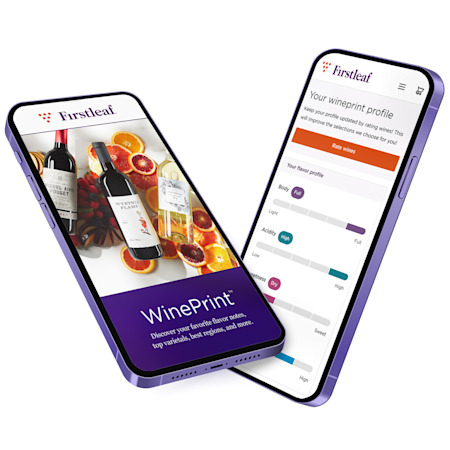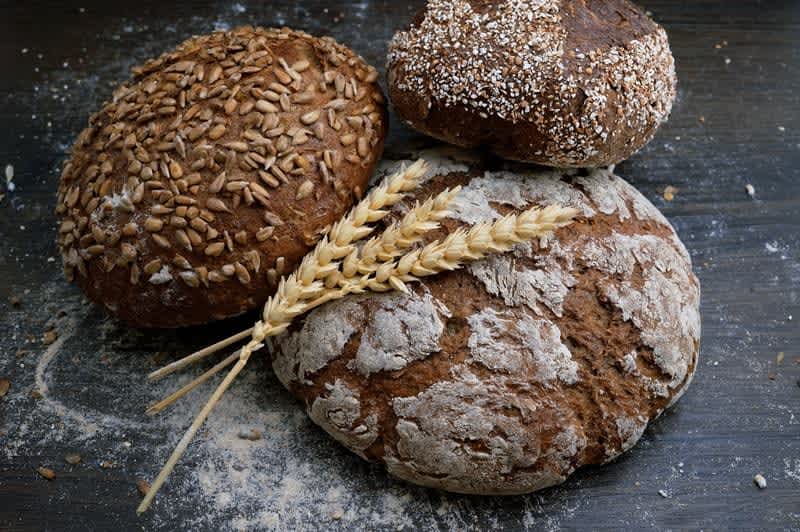Does Wine Have Carbs?
While it’s not entirely guilt-free, you could easily keep a balanced diet while still occasionally enjoying your favorite type of wine.
Switching to a low-carb diet can bring in lots of changes to the way you eat and drink. Maybe you spoke with your doctor about the health benefits of decreasing your carbohydrate intake to prevent (or manage) adverse health conditions, or perhaps you want to try a low-carb diet. Either way, we have good news for wine lovers—dry wine is low in carbohydrates, especially when compared with other popular alcoholic beverages.
The average glass of wine has between 0 and 4 grams of carbohydrates. So while it’s not entirely guilt-free, you could easily keep a balanced diet (keto diet or otherwise) while still occasionally enjoying your favorite type of wine.

Take Our Wine Quiz
Take our short wine quiz and discover award-winning wines that you'll love.
Get StartedIN THIS ARTICLE:
Want personalized wines?
Get your first box of wines for $44.95 + free shipping.

Does Wine Have a Lot of Carbohydrates?
The average amount of carbs per glass will vary depending on the grams of unfermented sugar per glass, not the alcohol content. Alcohol is metabolized differently from carbohydrates, so you are looking specifically at grams of sugar per glass to determine the grams of carbs. Both red wine and white wine (with similar residual sugar content) will have similar carb amounts.
Does Dry Wine Have Carbs?
On average, dry wines have between 0 and 4 grams of carbohydrates per glass (a single serving is considered a 5-ounce pour). Since most winemakers don’t list the amount of residual sugar left in a finished wine (see our article about sweetness and wine), it’s important to shop for low-carb wines by style.
As long as you seek out dry wines, you will be more likely to find something low in carbs—be careful because some sweet wines have up to 20 grams of carbs per glass, higher than the average margarita! We recommend searching for Extra Brut Champagne if you are very carb-conscious.
What Are Carbohydrates?
Carbohydrates are some of the fundamental building blocks of nutrition, and they are most often encountered in sugars and starches. They are found throughout nature and even play a major role in winemaking.
As grapes grow, they lose acidity but gain natural sugar (fructose and glucose) through the process of photosynthesis. Growers harvest grapes only when the sugar levels are right for the style of wine they want to produce. After harvest, the grapes are crushed, and the winemakers collect the sugary grape juice to kick off the fermentation process.
Fermentation takes the high-carb grape juice and converts the sugars into alcohol using yeast. This is why warm regions with lots of sunshine often produce high alcohol wines, and cold areas produce low alcohol wines—there are more sugars in the warmer region’s grape juice!
If the winemaker chooses to ferment out all the sugar, they will produce a low-carb wine because carbohydrates come from unfermented sugar.
Drinks To Avoid On A Low-Carb Diet
Since carbs are determined by excess sugars, looking for low-sugar options will be the best way to ensure you are following your diet. Here are a few rules that we follow when we want to eliminate carbs from our life:
Cheap Wine - While there are some affordable wines, mass-produced wines often feature added sugar, which raises the carbohydrate levels and the calories per glass. Popular wines like Apothic and Franzia have more sugar than you might expect. Apothic has 16.4 g/L (and is technically not a dry wine) while Franzia Chillable Red has a staggering 54 g/L!
Sangria - We believe that sangria can be a delicious wine-based drink, but it is not a low-carb alcoholic beverage. Most sangria recipes feature added sugar, juices, and fruit which massively raise the level of carbs per glass.
Sweet Sparkling Wine - Mass-market Prosecco and Moscato suffer from the same problems as other low-priced grocery store brands. Many of these winemakers top up their final product with a little extra sugar to satisfy consumer tastes.
Sweet Wines - When we say sweet wine, we don’t mean a fruity and lightly sweet Sauvignon Blanc. We mean late-harvest dessert wines like Sauternes, Tokaj, and Eiswein.
Mixed Drinks - Making a simple mixed drink is one of the easiest ways to relax after a long day of work, but did you know that a can of soda contains around 40 grams of carbohydrates? Having two drinks will spike your blood sugar levels and blow your carb budget for the day. If you must have a mixed drink, consider using diet sodas as your mixer.
Fruity Cocktails - While we love a great cocktail, fruit juice heavy beverages often feature simple syrup and other high-sugar mixers.
Regular Beer - Because it is made using grains, regular beer has around 13 grams of carbohydrates per serving.
What Drinks are Lowest in Carbs?
Remember, carbs in wines are determined by the amount of residual sugar left after fermentation, so the key to finding low-carb wines and lowering your carb intake is to seek out wines you know are dry.
Dry Sparkling Wine - As we’ve said, dry sparkling wines often have the lowest amount of carbs of any wine, and they tell you what to look for. Brut in Champagne and Trocken in Germany both mean dry. If you are really looking to cut down as much as possible, seek out Extra Brut or even Brut Nature, which has less than three grams of sugar per bottle.
Dry Red Wine And White Wine - The good news here is that most wine is fermented dry. Well-made wines, on average, feature between 0-4 carbs per serving, so comparing a glass of your favorite Pinot Grigio (or Pinot Gris) to a beer becomes a no-brainer.
Light Beer - Light beers switch up the formula a bit to make a drink that doesn’t leave behind residual sugars. You sacrifice flavor for lower carb content.
Martinis(And Other Spirit-Forward Cocktails) - As martinis are most often made with only spirits, the carb content is virtually zero.
Talk With Your Doctor
This article is meant to help the curious and functions as a good rule of thumb guide for carb content. If you have any health issues or questions about carbohydrates in your diet (whether keto or other) we recommend speaking to your physician to work out what is best for your body.
IN THIS ARTICLE
Want personalized wines?
Get your first box of wines for $44.95 + free shipping.


WinePrint™ by Firstleaf
Are you looking to learn more about your wine preferences? Check out our Wine Print for an in-depth look at your personal tasting profile. Discover your favorite wines, varietals, regions, and tasting notes and get personalized recommendations wherever you are.
Learn More

